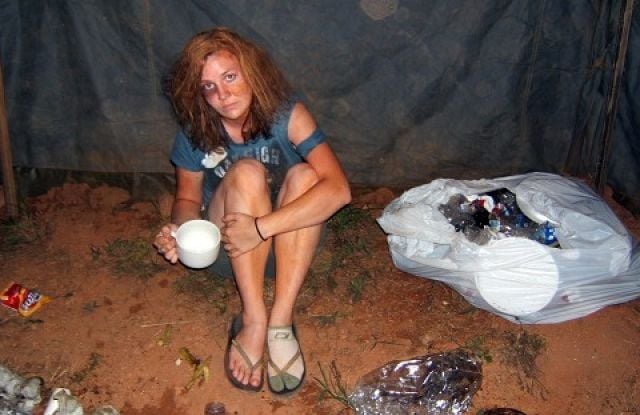10 Surprising Keys to Discipleship

It has taken me 25 years to figure out what Jesus taught his disciples in three years. And now I’m going to try to distill 25 years of living into one blog.
So much of what I’ve learned about discipleship has been a surprise – it’s bucked the conventional wisdom that I was told was normal for Christians.
Growing up in Columbia, Missouri was good and bad. The good was the small community church where I was known and accepted. The bad was that I had to leave that church in order to learn most of what Jesus had to share with me about discipleship.
If I could give you any gift, it would be the ability to understand and apply what Jesus said about living an abundant life. So, here’s my best effort. Here are ten things that I learned.
1. Mistaken Identity
Somehow I thought that I was as good as my grades and my accomplishments. I was what others said about me.
But I’ve learned that my identity has little to do with my performance. I’m God’s child and his love for me is unconditional.
I didn’t really start wrestling through core identity issues until I left home and began to ask, “Who am I?” If you’ve never left the environment that defined you growing up, you may never really grow up. Jesus spent 30 years in one town and then walked away from that and into his calling.
2. Journey
Have you ever thought about why Jesus walked around so much? I mean, why didn’t he just stay in one place like most of our religious people do?
He takes his disciples on an extended journey. Then in Luke 9 and again in Luke 10 he sends his disciples out on mini-journeys within that three year journey.
As I looked at the ways that God has grown me, I saw that it was often in the context of a physical journey. As I looked at Scripture, I realized that all the people God called out as leaders he sent on a journey, a kingdom journey.
In the context of a journey, spiritual movement parallels physical movement. As comfort zones narrow, spiritual possibilities expand. Journeys destabilize the false self so that your spirit man can wake up.
It’s what I’ve devoted my life to helping others experience. I believe in the idea so much, I wrote a book about it. If you’re in a stagnant place spiritually, consider that you may well need a journey to recover what you’ve lost. God gives us restlessness as a whisper that there’s more for us if we’ll just leave the place of our stagnation.
3. Listening Prayer
God speaks to us in many different ways. But when he spoke to me inwardly and personally and told me he loved me, everything changed.
We can preach about a personal relationship with God, but until our monologue becomes a dialogue, we’re making stuff up. And it all starts when we begin to listen for God’s still, small voice.
God desires to speak to us, but in this noise-filled world so crammed with distractions, he wants us to create space where dialogue can happen. A generation is growing up that desperately desires connection, but substitutes social media for the silence that God inhabits.
I’ve become such a believer in the power of listening prayer that I have asked our ministry staff to teach others how to listen to God’s voice on the short-term mission trips they lead.
We will never know the power of the Holy Spirit or possess real spiritual authority until we begin to listen to what God is saying and trust him enough to obey.
4. Deep Connection
The discipleship model that I learned in church revolved around group activities. We met in groups for Sunday school or Bible study. And as important as these meetings were, my soul longed for a deeper connection.
As I studied Scripture, I saw passages prescribing another way. 2 Timothy 2:2 says, “The things you have heard me say in the presence of many witnesses entrust to reliable people who will also be qualified to teach others.” 2 Timothy 3:16-4:2 describes how to do that.
And while no one came out of the woodwork to invest time in me like that, I found that didn’t prohibit me from modeling a different way to those I cared about.
I began with my children. I took them on trips with me. We ministered locally. I met with them personally. I taught them how to spend time with God daily.
From there I moved on to my children’s friends and the staff I cared about. Spending time together made all the difference.
5. Authentic Community
How is it that I could grow up in such a caring little country church and still feel a profound loneliness? Something inside me longed to be known at a deeper level. But how? Where could I go to find that?
I harbored insecurities that I couldn’t let others touch – places so tender that I didn’t dare talk about them. Bible studies were OK, but looking back on my high school years, I was depressed and had nowhere to go for a debrief.
In graduate school, I had my first experience with an authentic community. Four couples met regularly and did life together. It was a rich, liberating experience.
One of the great discoveries we’ve made in building the World Race is that you can go through all kinds of hardship if you’ve got a team going through it with you that believes in you. We implemented a system of honest feedback so that racers get the encouragement and challenge they need to move on to new places and new levels of growth.
The abundant life Jesus promises requires that we pour out. Heb 10:24-25 tells us to meet together regularly so that we have a place where others will pour into us. We can’t go where God wants to lead us without the authentic community of his body.
6. Intergenerational
Years ago God spoke to me about an epidemic of absentee dads. He showed me a group of young people and I heard him say, “It’s a fatherless generation.” And in the years to follow, I began to understand the impact that has had on young hearts. I saw how they struggled with identity, how they looked for affirmation.
Andrew Shearman points to a different model in Scripture. You see geneologies – lists of fathers and sons. You see the results of poor parenting as the inheritance of one generation doesn’t get handed to the next.
Young people need to see the reality of their parents’ faith not in words, but in action. Baby Boomers tried to outsource the discipleship of their children to youth pastors and it didn’t work. God designed the church to be multi-generational where the old impart to the young and the young bring life to the old.
Parents ministering with their children find themselves stretched and vulnerable. And children seeing the vulnerability of their parents realize that they don’t have to be perfect to embrace faith.
Many of us may feel we’re failing as parents – that’s when the influence of others our age in our children’s lives can make a difference.
7. Risk-based
I wish God loved my comfort zones as much as I do. But it seems that almost nothing happens in the kingdom without risk, without faith. We’re told, “Without faith it’s impossible to please God.” (Hebrews 11:6)
Why is that? I think it’s because God is looking for intimacy and intimacy starts with trust. When we trust God we do things that don’t make sense – we take risks.
When I’m’ growing most, I’m allowing God to speak to me and challenge me. The Holy Spirit frequently asks me to do things that I wouldn’t do on my own.
Growing in God requires change and change requires new behaviors, behaviors that feel risky.
8. Waking up
Life in the spirit is something we wake up to. Some people say that when Jesus said, “You must be born again,” he meant, “You must pray a prayer.” But repeating some words to God is nothing like childbirth.
When you begin to see and understand how the spirit realm operates, and when you begin to change your life to line up with that reality instead of the physical reality around you, it’s painful. We respond to discomfort by seeking change. When we trust God to get out of that place of pain, he begins to wake us up to the life in the spirit.
It is a perplexing process. We have to first unlearn old habits before we can pick up new ones. The habits of shopping, or listening to friends complain about their lives, or plugging into media distract us. If we are to move from one kingdom to another, we must create space for it in our lives.
Childbirth is wrenching, bloody and painful. So it is when we shift our perspective from life in the realm of flesh and blood to reality of life in the spirit. Our habits and thoughts must change through pain and the change itself is painful.
9. Kingdom Dreaming
God dreams. He dreams of freedom for his children. He dreams about the widow and the orphan, the poor, the oppressed. He tells us that our lives are not about ourselves. We find our deepest fulfillment when we allow him to give us his dreams.
When that happens, it feels like a call. Maybe that’s when we feel God’s trust the most – when he gives us a dream he cares about and asks us to steward it.
10. Three year process
I calculate that Jesus invested approximately 15,000 hours in his disciples (5,000 hours/year of constant modeling, teaching and debriefing). Then their spirits were seared by watching him die, and then they spent days waiting for the empowerment of the Holy Spirit. Who are we to do any less?
Most of my adult life I’ve sought to find a way around the long road of commitment that Jesus’ pattern of relationship requires.
Jesus took three years to disciple his disciples and they still looked like a mess in the end. Three years of intensive, personal, challenging life together was just barely enough to get them to a place where they were succeeding as much as they were failing.
Jesus’ best disciple, Peter, the rock upon which Jesus said he’d build his church, was like a spiritual toddler falling down as he learned to walk. There he is walking on water one minute and chopping off a soldier’s ear or denying Jesus multiple times the next minute.
—————-
So, there you go. Ten lessons in 25 years. If that feels like a lot, I hope you find consolation in the fact that it only took me a quarter of a century to get my arms around it. As you press into God, you’ll find that he wakes you up to his kingdom in ways that you never thought possible.



Thank you Seth. I think this is more than lessons learned. I think this is the core values of a movement.
And this is why when I got to training camp in July 2010 my soul said ‘found them’, referring to the community I always longed for. I am forever changed because of you and the World Race! Thank you for your wisdom and living it out so beautifully!! Seriously, thank you!
Thanks a lot, Seth. I see much wisdom in these principles. I look forward to learning how to apply them to my discipleship relationships.
Thank you Seth, this is great, for distilling the learning of your own experience and also highlighting the path of the chosen disciplines. It feels helpful to have their… vacillations pointed out, Peter as a spiritual toddler and how he exhibited a seeming lack of adherence and yet became the founder of the Christian church. I have bookmarked this to return to and reflect upon. Many blessings.
Thank you for your commitment to discipleship. As I attempt to start the journey of mentoring, it’s reassuring to be able to seek the wisdom of those who have already learned so much.
You’re welcome, Jake. Hope you’re well.
You are certainly welcome, Deon. I love watching the way you implement these principles.
Hope you’re doing well, Loretta. You’ve got everything you need to apply 2 Timothy 2:2 with great success!
My pleasure, Jennifer. We all vacillate as we grow. The point is to keep growing!
Hey A.J. – you’re the best. Thanks for the encouragement!
Incredible. Thanks for your patience Seth to share as much as you can all the ways God has spoken to you. I lived out all of these items on the World Race and I grew more with God and faster than I ever had before. Keep up the good blogs
This really spoke to me a ton. I had been saving it on a tab for a while and finally read it yesterday. So good Seth and thanks for sharing this treasure chest of life experience.
I saved it on my phone to review. #10 was especially my favorite one because I can really relate to Peter in the sense of my Race being the 1st year and almost 3 years since I was called… where I’m at with the Lord right now. It’s rough but it gave me hope.
Good to hear from you, Brant. I love the direction you’ve chosen for your life living amongst the poor of India.
Yeah, it takes longer than most of us expect or would like to become a disciple.
Thanks, Seth, for investing fruit of those 25 years in me. You have given a strong foundation for many to build on.
You’re welcome, Neil.